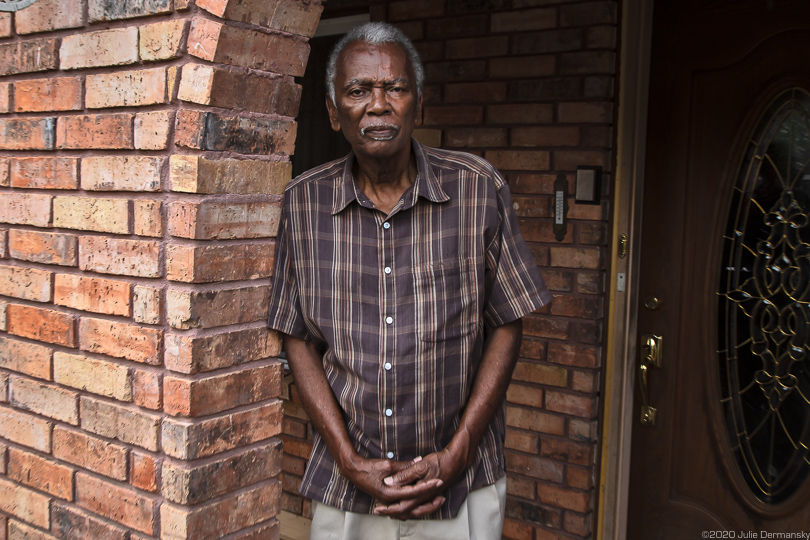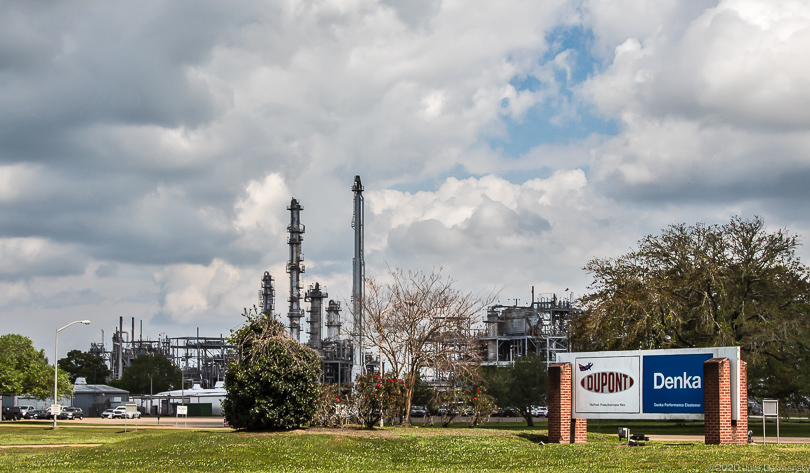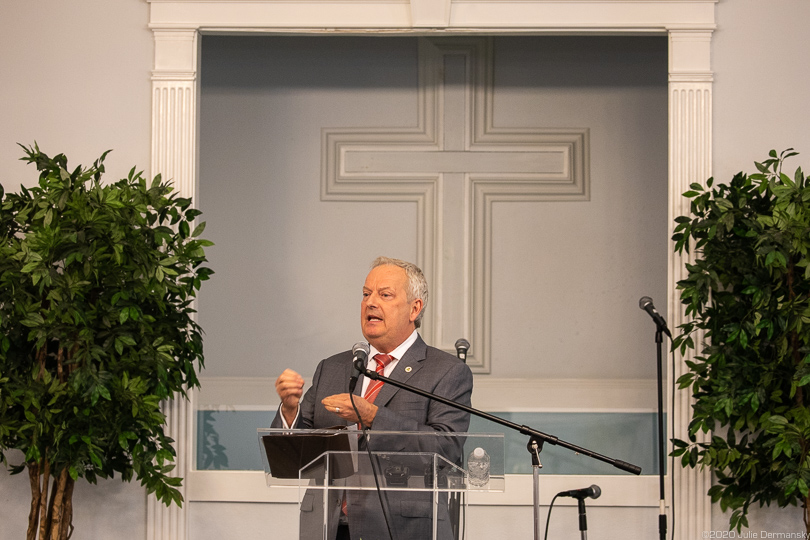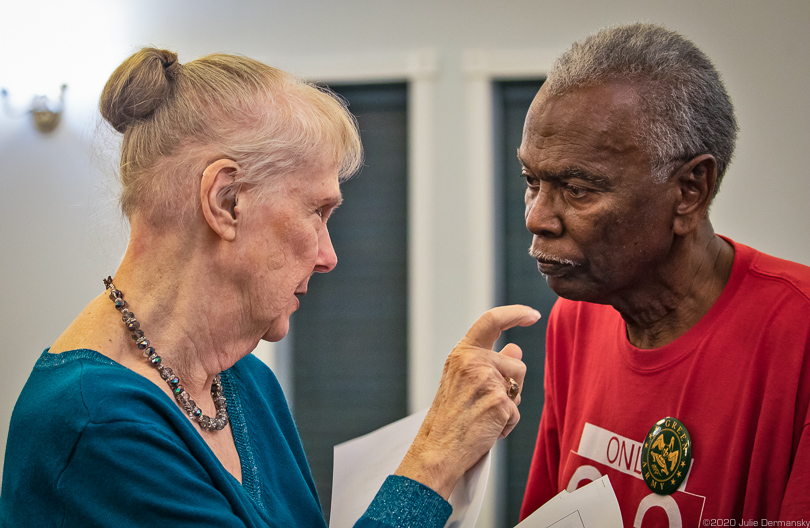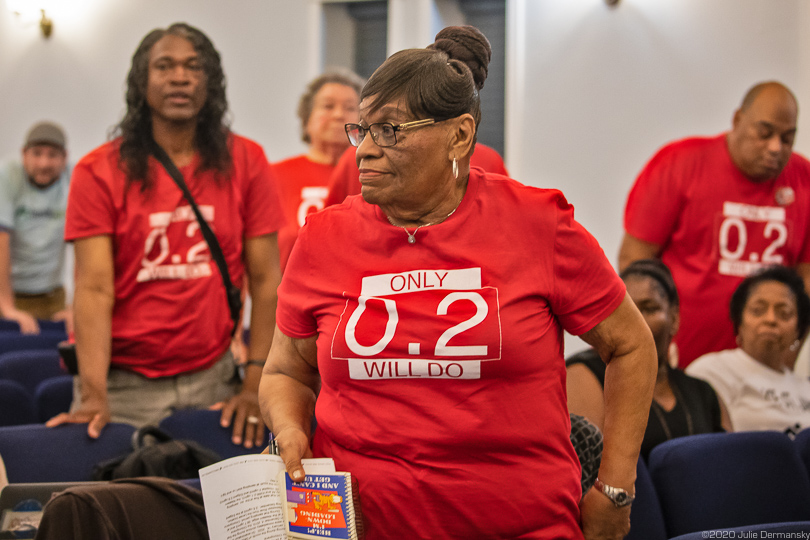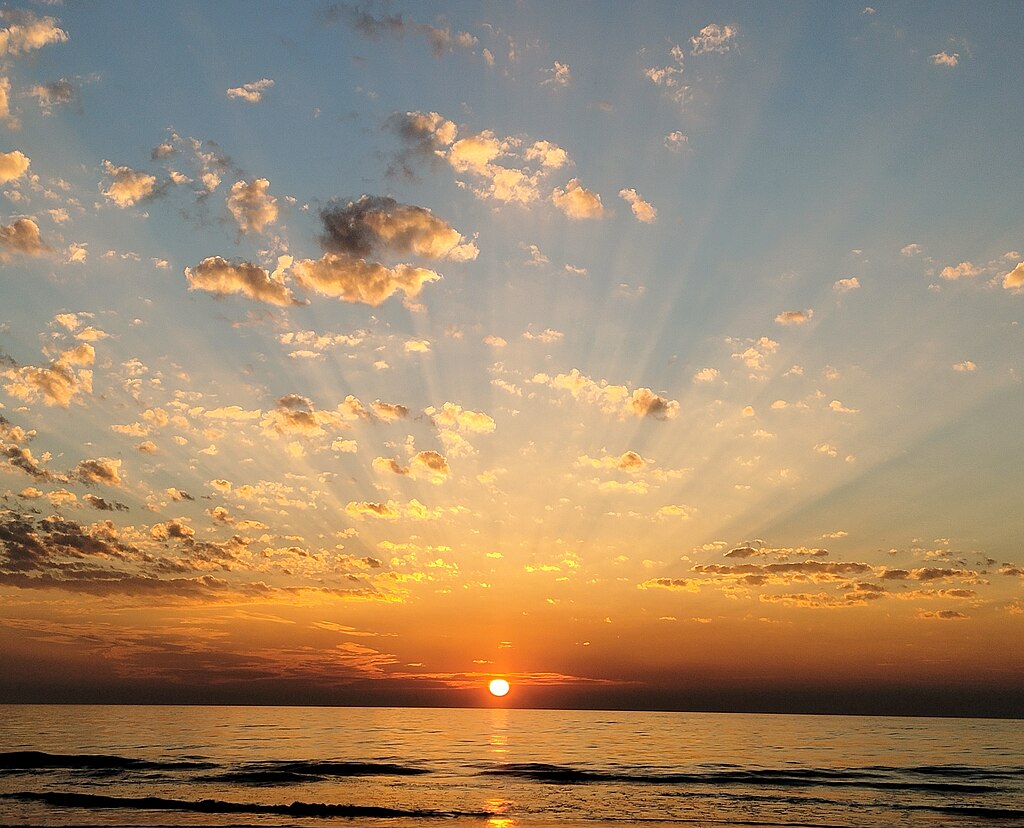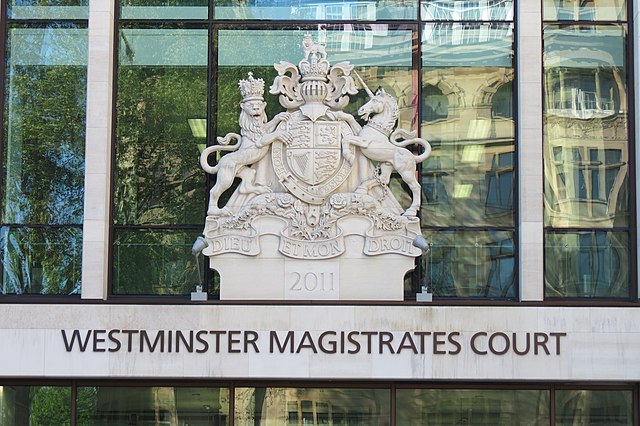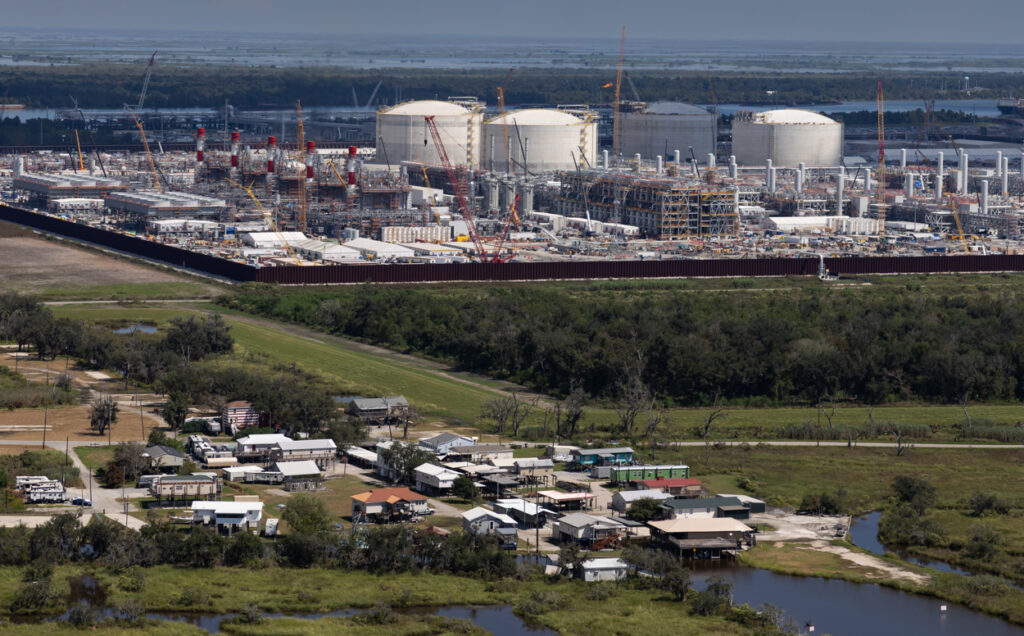“Our people aren’t prepared for a pandemic,” Robert Taylor, executive director of the Concerned Citizens of St. John The Baptist Parish, told me a couple of days before the governor of Louisiana issued a stay-at-home order due to the rapid spread of COVID-19 in the state.
“Many of us have cancer and weakened immune systems from the chemical onslaught we endure everyday. This could be a death sentence for many of us,” Taylor said.
“We have been suffering horribly with health issues here, and struggling for our lives already from the man-made epidemic,” Taylor said. “I don’t have any good feelings of how we are going to fare suffering now from a pandemic.”
He doesn’t believe that anyone in his predominately African American, low-income community had the money on hand to stockpile food and supplies. “By the time people were able to shop for what they needed, the store shelves were emptied out by those who had the resources,” Taylor said.
The Denka Performance Elastomer plant, owned by DuPont until 2015, in St. John the Baptist Parish, Louisiana.
The citizens group he founded in late 2016, when the community learned that it had been exposed to chloroprene, a chemical determined to be a likely human carcinogen by the Environmental Protection Agency, has been fighting for safe air ever since. Chloroprene is just one of many toxic chemicals emitted by DuPont’s synthetic rubber plant in LaPlace, which is less than a mile from Taylor’s home. His community had been exposed to DuPont’s pollution for 46 years before it was sold to Denka. The Japanese chemical company purchased the company in 2015, and continues to emit chloroprene, which the plant uses to make the synthetic rubber commonly known as Neoprene.
Video: Robert Taylor on the Pandemic
According to the EPA’s National Air Toxics Assessment published in 2015, which evaluates air contaminants and estimates health risks, residents near Denka’s plant were determined to have the highest risk of air pollution-caused cancer in the country, nearly 50 times the national average.
Now his community has to face another factor. Not only are they faced with the greatest risk of cancer from air pollution, they also now live in a state with the fastest growing number of confirmed COVID-19 cases in the world, according to data compiled by Gary Wagner, Acadiana Business Economist at the University of Louisiana at Lafayette.
“We have the fastest growth rate in confirmed cases in the world over the first thirteen days right here in Louisiana,” Governor John Bel Edwards said during a March 22 press conference. “I’m going to say that again so people can understand what I just said, In the last two weeks our growth rate has been faster that any state or country in the world.”
The Governor announced a stay-at-home order that began at 5:00 p.m. on March 23, and warned that the healthcare system could be overwhelmed within the next week.
The EPA has been monitoring chloroprene levels around the Denka plant and making its findings public for the last few years. The Denka plant voluntarily cut its emissions dramatically since 2016, but EPA air monitoring continues to show that chloroprene levels are still often dozens of times higher than the lifetime exposure threshold recommended by the agency.
David Gray, an EPA Regional Administrator, at a community meeting in Reserve, Louisiana on February 11.
David Gray, EPA‘s Region 6 Deputy Regional Administrator, who has visited the community a few times to keep them abreast of EPA’s efforts to get Denka to further reduce emissions, confirmed that its air monitoring program will continue despite the pandemic, at least for now, during a call on March 23.
He last visited the community on February 11 to explain changes the agency was making to the way it monitors for chloroprene, where he fielded question from community members who expressed frustration that the EPA isn’t doing more.
Wilma Subra, scientist and community advocate, with Robert Taylor at a public Concerned Citizens group meeting on February 11.
“On top of the constant exposure to chloroprene, the community now has to worry about exposure to a virus,” Wilma Subra, a technical advisor with the Louisiana Environmental Action Network (LEAN) who has been advising the Concerned Citizens group, said on a call.
For the last couple of years, Subra has met with the group every couple of weeks and gone over the data from the EPA air monitoring program and other issues connected to the plant.
“It is one thing on top of another,” she said, expressing her concern for the community and the members of the citizens group, which is made up primarily of people over age 60. “Many of them are the most vulnerable to the virus because they have preexisting conditions.”
Before the first reported COVID-19 case in the United States, the concerned citizens group was planning a protest to shut down the Fifth Ward Elementary School, which is less than a half-mile from the Denka plant. The group has pleaded with the school board and the state that the children at that school need to be relocated to schools elsewhere to decrease their exposure to chloroprene.
Mary Hampton, the president of the Concerned Citizens of St. John the Baptist at the group’s February 11 meeting in Reserve.
Mary Hampton, the president of the Concerned Citizens group, finds it ironic that for years they have fought to close the school next to the plant and were told it couldn’t be done. “Now the virus did what we couldn’t,” she said on a call. The school is finally closed, at least temporarily due to the pandemic.
She doesn’t expect help from the government on any level since the group hasn’t been able to get any entity to help protect the children. “There is nobody to protect us. Nobody,” Hampton said.
Hampton is also worried that the plant will end up operating with a skeleton crew. “The plant can do whatever it wants now,” she said. “No one will be watching it.”
An employee at the Denka facility tested positive for COVID-19, according to a press release on March 24. The release also states that the company implemented measures to prevent the spread of the virus at the plant where about 250 people work and took steps last week to reduce staff to essential personnel only, while allowing others to work remotely.
I asked a spokesperson for Denka if the plant plans to cut production but did not get a reply before publication.
Read DeSmog’s ongoing coverage: Louisiana’s Cancer Alley Communities at Risk
Main Image: Robert Taylor, the executive director of the Concerned Citizens of St. John the Baptist. Credit: All photos and video by Julie Dermansky for DeSmog
Subscribe to our newsletter
Stay up to date with DeSmog news and alerts


